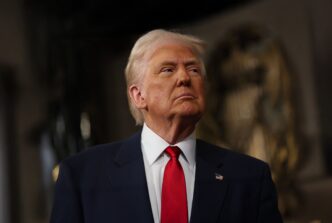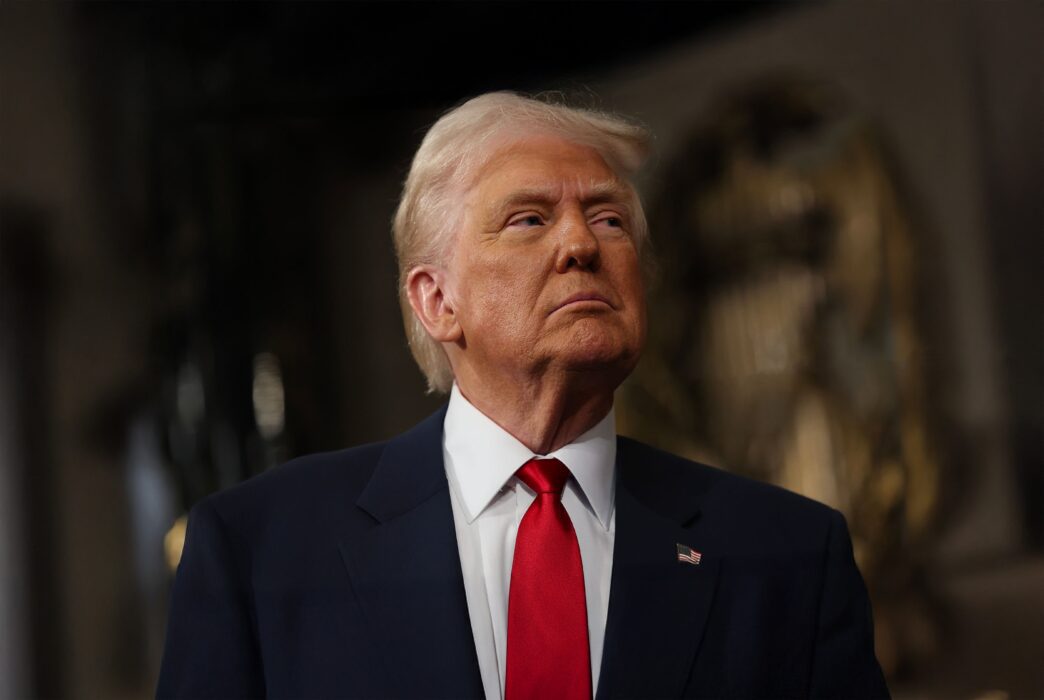Executive Summary
- President Trump maintained a notable silence and the White House offered a muted response following former Vice President Dick Cheney’s death, contrasting with widespread bipartisan condolences.
- The subdued reaction stems from a long-strained relationship between Trump and Cheney, which deteriorated significantly after January 6, 2021, leading Cheney to endorse Kamala Harris in 2024.
- While flags were lowered to half-staff for Cheney in accordance with federal law, this action was not accompanied by a presidential proclamation, underscoring the deliberate nature of Trump’s muted response.
The Story So Far
- The subdued reaction to former Vice President Dick Cheney’s death from the Trump administration stems from a long-standing public animosity between Donald Trump and Cheney, which dates back over a decade. Their relationship further deteriorated significantly after the January 6, 2021, Capitol attack, leading Cheney to publicly criticize Trump as a “coward” and ultimately endorse Kamala Harris in 2024, despite having supported Trump in 2016.
Why This Matters
- President Trump’s deliberate silence and the White House’s muted response to former Vice President Dick Cheney’s death, contrasting sharply with traditional bipartisan condolences and even Trump’s own discretionary flag honors for others, underscores the depth of partisan animosity now extending to moments typically reserved for national unity. This highly unusual presidential conduct highlights Trump’s willingness to prioritize personal grievances over traditional decorum, potentially setting a new precedent for how political opponents are acknowledged, or not, across administrations, thereby further normalizing extreme political polarization.
Who Thinks What?
- President Trump and his administration maintained notable silence and offered a muted response to Dick Cheney’s death, reflecting Trump’s long-standing public disdain for Cheney and their significantly deteriorated relationship, particularly after January 6.
- Dick Cheney publicly viewed Trump as a “coward” and a threat to the republic, leading him to endorse Kamala Harris in 2024 and emphasize the duty to “put country above partisanship.”
- The White House, through Press Secretary Karoline Leavitt, confirmed President Trump was “aware” of Cheney’s passing and that flags were lowered to half-staff “in accordance with statutory law,” without further comment on Trump’s personal sentiments or funeral plans.
President Donald Trump has remained notably silent following the death of former Vice President Dick Cheney on Tuesday, a stark contrast to the bipartisan condolences that have emerged. The White House offered a muted response, with Press Secretary Karoline Leavitt confirming only that Trump was “aware” of Cheney’s passing and that flags were lowered to half-staff.
Vice President JD Vance also did not issue a statement. The subdued reaction from the current administration aligns with Trump’s long-standing public disdain for the former vice president, a sentiment he expressed even before his 2016 campaign.
Historical Tensions
Trump’s criticism of Cheney dates back over a decade. In a 2011 video, Trump stated, “I didn’t like Cheney when he was a vice president. I don’t like him now.”
Despite this, Cheney, a prominent conservative figure, endorsed Trump’s presidential bid in 2016. However, their relationship deteriorated significantly in recent years, leading Cheney to cross party lines to endorse Kamala Harris in 2024.
Post-January 6 Relationship
The relationship between Trump and Cheney worsened particularly after the January 6, 2021, attack on the U.S. Capitol. Dick Cheney publicly criticized Trump as a “coward” and a threat to the republic in an advertisement supporting his daughter, then-Rep. Liz Cheney, during her 2022 reelection campaign.
Liz Cheney, who served as vice chair of the House select committee investigating the Capitol attack, ultimately lost her primary to a Trump-backed challenger. In endorsing Harris, Dick Cheney emphasized the duty to “put country above partisanship.”
White House Response and Flag Protocol
Leavitt did not respond to inquiries regarding whether Trump plans to attend Cheney’s funeral or if he had communicated with the Cheney family. She reiterated that the President was aware and that flags were lowered “in accordance with statutory law.”
Federal law mandates that flags at all federal buildings, grounds, and naval vessels fly at half-staff for specific periods following the death of officials like vice presidents. For former vice presidents, flags are lowered from the day of death until interment.
The lowering of White House flags occurred hours after Cheney’s death was announced, but it was not accompanied by a presidential proclamation. This differs from Trump’s actions upon taking office in 2025, when he signed a proclamation within hours of his swearing-in to raise flags to full-staff, overriding the half-staff honor for former President Jimmy Carter, who died on December 29, 2024.
While some flag honors are mandatory, flying the flag at half-staff for other officials is at the president’s discretion. Trump has extended this honor three times during his second term: for assassinated conservative activist Charlie Kirk in September, for victims of a Minneapolis church school shooting in August, and for Pope Francis in April.
Trump’s Recent Remarks
Weeks after Cheney’s endorsement of Harris, Trump reflected on his relationship with Cheney during a town hall with Tucker Carlson before the 2024 election. Trump stated he “didn’t know him at all” but had spoken with him after pardoning ex-Cheney aide Scooter Libby in 2018.
Trump expressed some surprise that Cheney did not side with him over his daughter, but added, “And you know what? I understand it. It’s your daughter and you go.”








